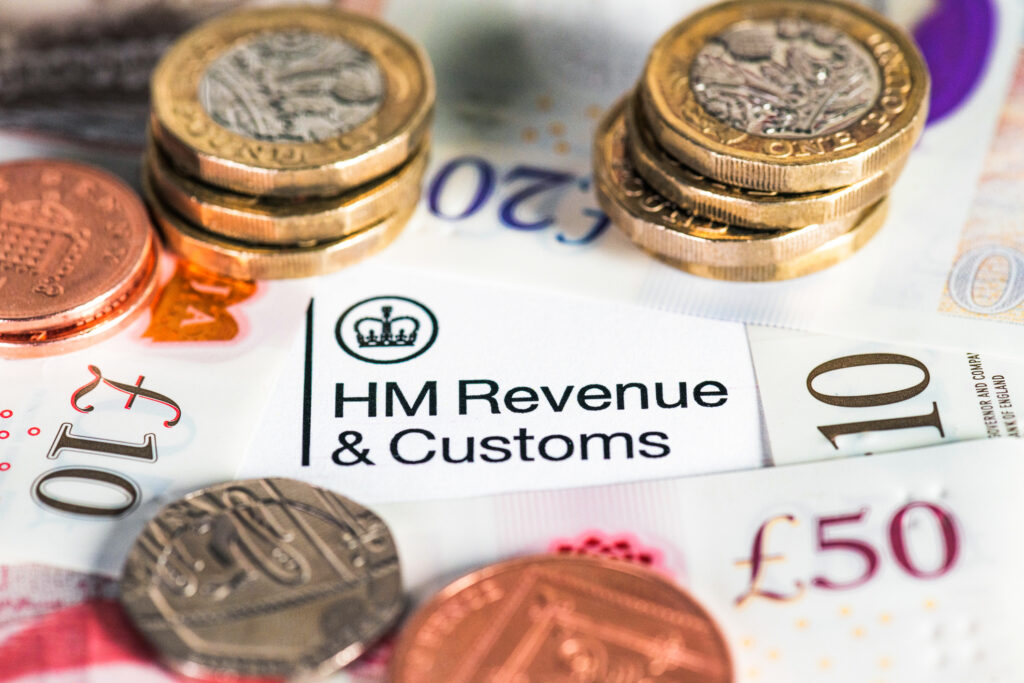The Bank of England Believes that Inflation Will Definitely Fall in 2023

A collection of modern British banknotes surrounding the HM Revenue & Customs heading on a UK Government tax form.
The Bank of England said that it expects inflation to fall by the end of this year unless there is a new event that could affect the global economy. However, expectations of a halving of inflation could be threatened by government policy on prices and wage settlements. Although there are many factors that support a downward inflation trend, the Bank of England is not cutting interest rates for fear of further price increases. As a reminder, the Bank of England is a special public law institution of the United Kingdom playing the role of the central bank.
On the one hand, there are now strong indications that inflation will rise this year and therefore sustained growth has been postponed for the time being. On the other hand, there are powerful forces that could pull inflation down, provided that no strong upward factors emerge. At the moment, the consumer price index (CPI) has reached a very high level of over 10%. However, it might decline by 6% by the end of 2023 if the economic environment does not change fundamentally.
The bank representatives stated that they have significantly tightened the policy which has had a strong impact on demand and could thus lead to lower inflation. Currently, the Bank of England is running at a 4% interest rate which is considerably higher than it was in 2008 during the Global Financial Crisis. Despite the possibility of a recession in the economy, the UK central bank has taken such measures as inflation continues to be relatively high.
The Governor of the Bank of England, Andrew Bailey, expressed his concern that inflation continues to persist. Reaching 10.5% year-on-year in December 2022, it has led to a sharp fall in living standards in the UK. As a result, public-sector wage growth has lagged far behind that of private-sector wages. All this has led to massive strikes by public sector workers. Despite this, Andrew Bailey urged workers and employers to take into account the very likely fall in inflation this year when negotiating pay levels.
So, according to the head of the central bank, there are several factors that will cause UK inflation to fall in 2023:
- A low-base effect of the crisis in the global economy.
- A fall in the cost of wholesale energy prices due to the partial withdrawal of fossil fuels previously imported from Russia.
- Sharp fall in prices of imported goods.
- Decrease in demand due to lower purchasing power of citizens.
On the other hand, a contractual increase in workers’ wages could be a factor further contributing to inflation. However, much will depend on how the wage increase is achieved. For example, wage increases can be financed either through tax increases or borrowing. However, Bailey also said that all of these calculations regarding pay rises are still below the inflation rate.
The general decline in British living standards due to inflation has had an impact on everyday life. For example, not everyone can now afford online gambling, one of the UK’s favourite pastimes. Although you can still find online casinos that take American Express and other payment options, the current salary level means that not everyone can enjoy entertainment today. However, Bailey urges citizens to look ahead with optimism, as inflation could drop very quickly from mid-2023, and this should be taken into account.
Recall that at the end of January, train operators requested a 9% pay rise from the RMT union. At the beginning of January, thousands of teachers went to rallies to ask for a pay rise. However, they only managed to get a 5% increase, which is below the current inflation rate. Finally, we witnessed a strike by the Royal College of Nursing, the first such event in its more than 100-year history.




